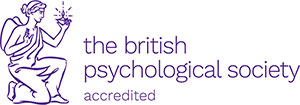
Psychology with Counselling
BSc (Hons)
- Typical offer for 2024
- Duration
- UCAS code
Suitable for applications.
I was so impressed with the counselling module. I thought it was just going to be like a normal textbook lecture but the professor had a lot of fieldwork experience in counselling.
Learning and assessment
The teaching, learning and assessment strategy aims to develop active learning and takes into consideration the need for you to take greater responsibility for your own learning as you progress through the programme. You will be exposed to a variety of different learning and teaching approaches and activities. Specifically, knowledge and understanding as well as transferable skills will be developed through:
- lectures
- laboratory/workshops
- seminars (e.g. problem/discussion based)
- tutorials
- projects/dissertations
- directed and self-directed study
- assessment-based learning (formative and summative)
- problem based learning
- collaborative learning and group work
- peer mentoring
Our approach is underpinned by research-led teaching which includes being exposed to the specialist research interests and practices of our academic team as well being informed by educational research.

Study abroad
You have the opportunity to study abroad for one year in one of over 20 partner institutions, ranging from Canada and the USA to Holland, France, Spain, Sweden, India, Oman and more.
You will have support from the Programme Leader. Programme Team and the University Opportunities Team in making plans and identifying the best options to meet your requirements and during your year abroad.
The full list of exchange partners and network of Universities available for a Study Abroad Year, as well as further information about international opportunities, can be found here.
Study support
We have a commitment to strong pastoral care for all of our students, which includes a Personal Tutor for all students, regular contact hours for tutor groups and our supportive student service teams who are always ready to help with any questions and provide the advice that you need.
In addition to standard study support through taught sessions, our Virtual Learning Environment allows students to access resources, participate in group work and submit work from anywhere in the world 24/7.
University central services are rich with support teams to assist students with every aspect of their journey through our degree programmes.
From our Career and Employability Service, through our strong Students' Union, to our professional and efficient Student Finance team, there are always friendly faces ready to support you and provide you with the answers that you need.
Research
Members of the Division of Psychology are engaged in exciting and innovative research at the cutting edge of Psychology. Our research expertise represents interests in the application of psychology to understanding health and well-being, food and behaviour, lifespan psychology and neuropsychology.
Key areas of interest:
Cognition across the lifespan
- Memory and language processing in healthy ageing and in people with dementia
- Multilingualism and cognitive function
- Accuracy of cognitive testing and the effects of external factors on test scores
- Young children’s cognitive and emotional development
- Children’s and adolescents’ inner worlds
- Cognitive ageing and what can be done to prevent or delay it
Health Behaviours
- Eating behaviour and obesity
- Normative beliefs and misconceptions about health behaviour
- Body image and ageing
- The role of community practice in addressing health inequalities
Enhancing psychological wellbeing
- Safeguarding children
- Social media: friend or foe?
- Interventions to improve people’s lives
- History and philosophy of psychology
We draw on both quantitative and qualitative approaches including:
- Experimental methods
- Biological and physiological measures
- Questionnaire studies
- Narrative/ biographical approaches

